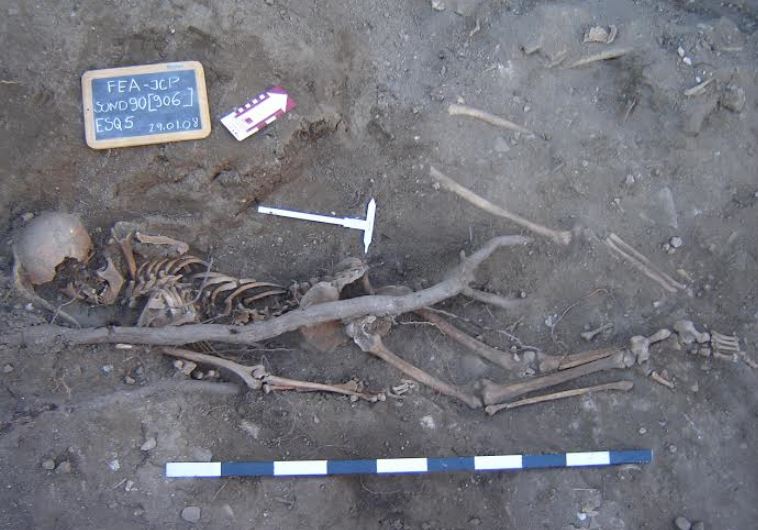Remains of Jewish victims of Portuguese Inquisition found in ancient garbage heap
Although not as well known, the Portuguese version of the Inquisition was very similar to Spain's.
 Remains of Jewish victims of Portuguese Inquisition found in ancient garbage heap(photo credit: BRUNO MAGALHAES)Updated:
Remains of Jewish victims of Portuguese Inquisition found in ancient garbage heap(photo credit: BRUNO MAGALHAES)Updated: